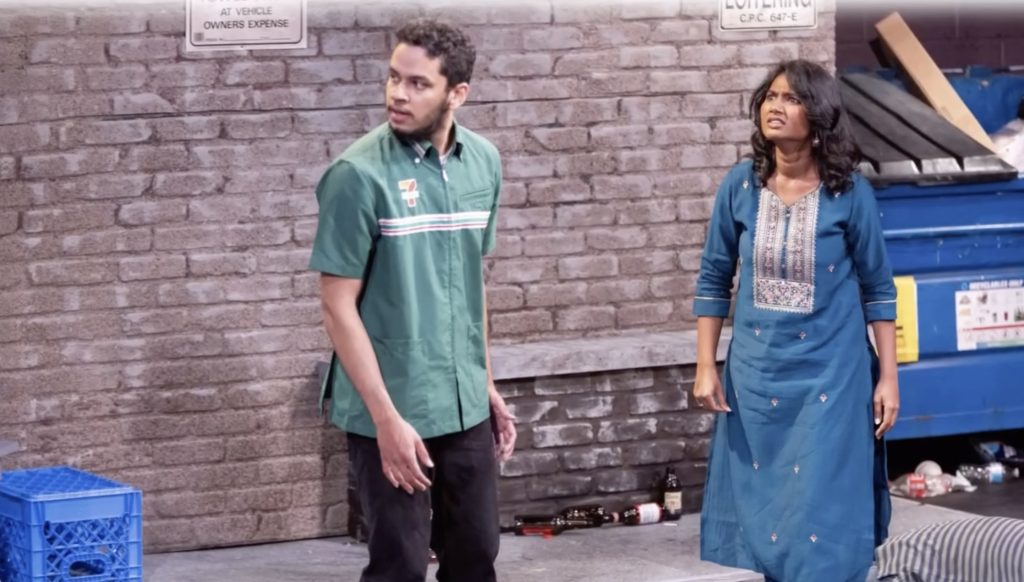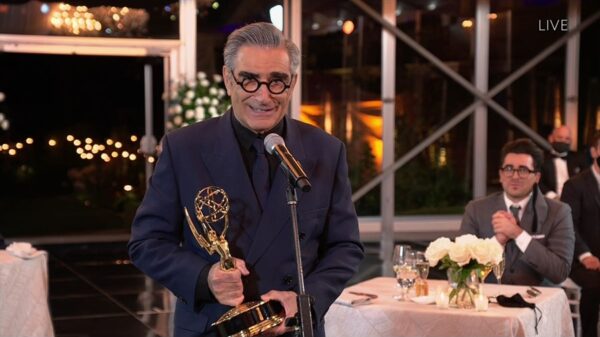Los Angeles, CA — On Sunday afternoons, the Odyssey Theatre Ensemble transformed from a stage into something more intimate — a sanctuary. Following every matinee of Suburbia, a revival of Eric Bogosian’s 1994 play, representatives from the Didi Hirsch Suicide Prevention & Counseling Center hosted talkbacks with the cast and audience. These sessions opened the floor to raw, urgent discussions around mental health, addiction, and the quiet despair often hiding in plain sight.
At the center of these conversations was the character Bibi, who dies of an apparent overdose — a moment left deliberately ambiguous in the script but undeniably tragic. While Suburbia follows a group of suburban youth navigating identity, purpose, and alienation, what resonated deeply with many audience members was the emotional burden each character seemed to carry. Suicidal ideation wasn’t an exception in the play — it was everywhere.
Art Imitates the Mental Health Crisis

Didi Hirsch’s counselors — part of a nationally respected mental health organization focused on suicide prevention and survivor support — helped create a space where audience members could process what they had just experienced. The talkbacks turned out to be more than just post-show chatter. They became places for truth-telling.
“The question wasn’t ‘who is suicidal?’” one counselor said during a Q&A. “It was ‘who’s trying hardest to pretend they’re not?’”
The performance blurred the line between theater and real life — and for many in attendance, the conversations afterward made that line disappear entirely.
Stillness in the Storm: Pearly Mitnasala’s Quiet Impact
Though Suburbia is filled with volatile characters and chaotic energy, one role in particular stood out in the post-show discussions: Pakeeza Chaudry, the 7-Eleven clerk who observes the drama from behind the counter. Played by Pearly Mitnasala, Pakeeza doesn’t say much. But her silence echoed loudly with audiences.
“Pakeeza never says much,” one audience member shared. “But the way Pearly played her — you could feel the judgment, the worry, the grief. It was like she knew where each of them was headed.”
Mitnasala’s performance added a layer of empathy and sorrow that lingered long after the curtain call. She had recently rejoined the production just before opening night following the loss of her grandmother — a real-life grief that seemed to infuse her portrayal with quiet heartbreak.
“Stillness has weight,” she said during the final Q&A. “Watching people destroy themselves with no way to stop them — that’s its own heartbreak.”
Threads of Truth
The talkbacks quickly evolved into more than reflections on the play. Audience members began sharing their own experiences — recovering from suicidal thoughts, grieving family lost to overdose, struggling with invisible battles. And in between the praise for the direction, performances, and staging, something more lasting emerged: community.
Director Michele Gossett, producers from the Mojo Ensemble, and cast members including Prahaan Padhiar spoke openly with attendees. Their candor seemed to give permission for others to do the same.
What emerged wasn’t just appreciation for the art — it was a collective need to be seen and heard.
A Final Reflection

“As actors, we don’t always get to know the impact of our work,” Mitnasala reflected during the closing Q&A. “But these Sunday shows reminded me — sometimes, what we say in fiction gives people permission to speak their truth in real life.”
Suburbia did more than revive a play. It created a space — fragile, fleeting, but deeply meaningful — where art gave way to honesty, and where theater became a vehicle for healing.
Follow Actress Pearly Mitnasala Instagram & IMDb:
https://instagram.com/readyin5mins
https://www.imdb.com/name/nm15853079




























